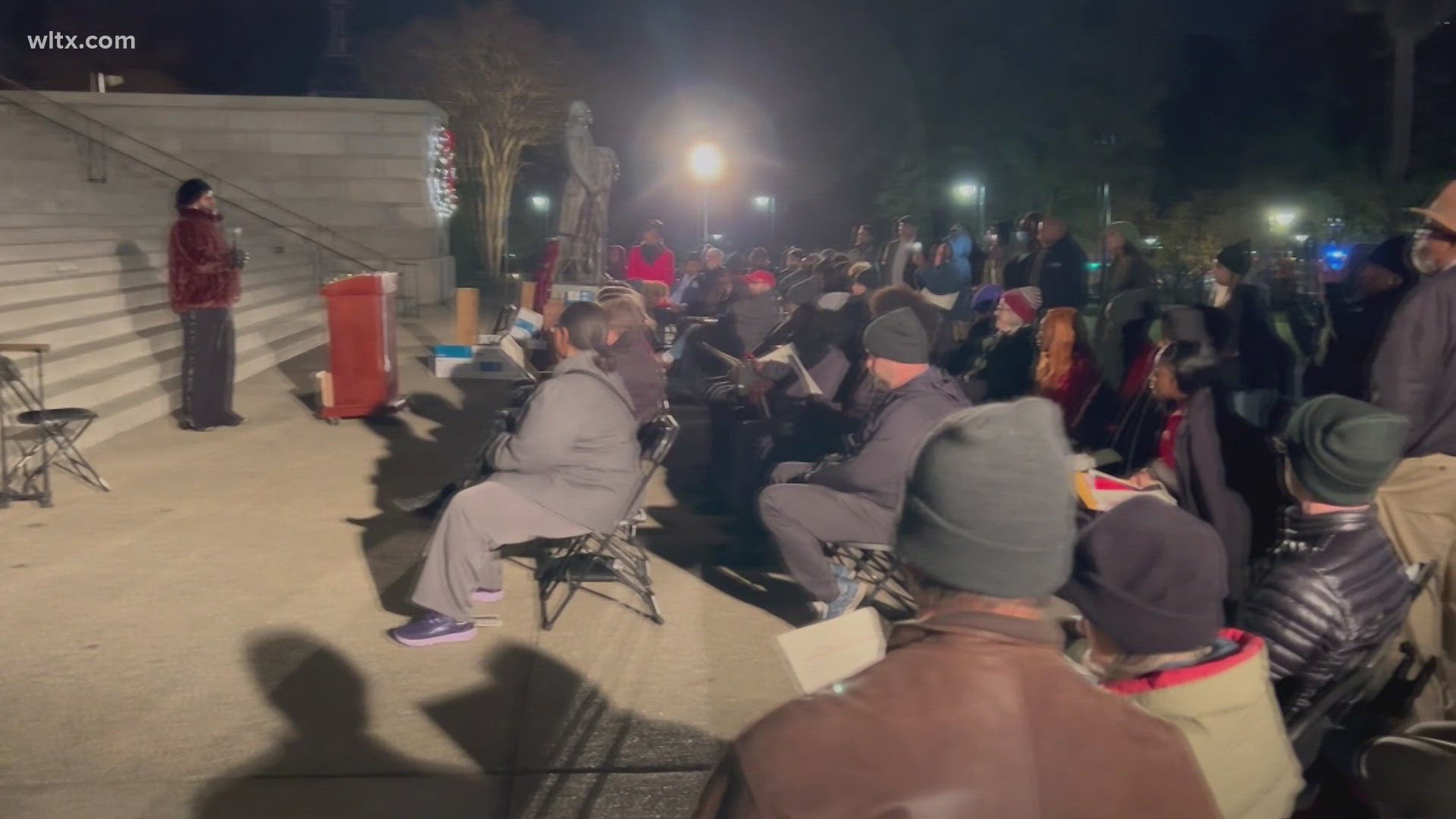COLUMBIA, S.C. — Monday evening, members of the public joined researchers, activists, and HIV survivors on the steps of the South Carolina statehouse to recognize World AIDS Day.
The ceremony was not only an opportunity to look back and remember those who lost their lives to HIV and AIDS but also look forward to a time in the not-so-distant future when experts hope the virus will be eradicated.
The Center for Disease Control says the World Aids Day is an opportunity to remember the 32 million people who have died worldwide from AIDS-related illness.
In Columbia Monday, PALSS, Inc, the Palmetto AIDS Life Support Services group, welcomed the public to the statehouse steps to for a special ceremony featuring HIV survivors, researchers, and supporters.
PALSS CEO Carmen Julious said the event was focused on the future.
“We’ve made such great gains in medical care for persons with HIV, but more importantly we’ve made great gains in the number of people who know their HIV status, so that they can get into care early,” Julious explained.
That early detection is key to stopping the spread of HIV, especially in South Carolina.
The CDC says that 16% of South Carolinians with HIV are unaware of their status. That means they aren’t getting the care they need and may not be taking adequate steps to stop the spread of the disease.
Nationwide, the southern portion of the United States was responsible for almost half of all new HIV infections in 2022, according to the latest data from the CDC.
Tony Price is the Prevention Unit Manager for STD, HIV, and Viral Hepatitis with the South Carolina Department of Public Health. He said the department is offering free screenings across the state to help aid in detection.
“Tuesday, the Department of Public Health will be recognizing World AIDS Day with free HIV testing at most of our local health departments throughout the state. Also, free STD and hepatitis-c testing will be offered as well,” Price said.
Julious said that being aware that they have HIV allows patients to take the steps necessary to control it with medication and make the necessary decisions to prevent spreading the virus to another person.
The ultimate goal is to see HIV and AIDS go the way of polio and smallpox.
“We’re very hopeful that we can end the epidemic, reduce or eliminate new HIV infections around the country, and particularly here in the Midlands,” Julious said.
Hope is on the horizon that an HIV vaccine could soon be available.
In a new report released Sunday, drug maker Gilead said their Sunlenca product has been shown to be 100% effective in preventing HIV in women with just two injections a year. Results published last week also show the shots worked nearly as well in men.
The bottom line?
HIV and AIDS are no longer the death sentence they once were.

